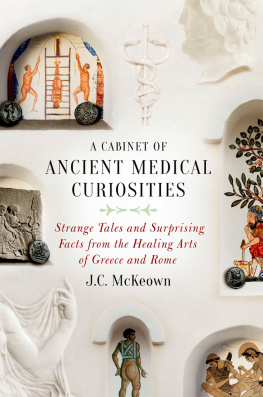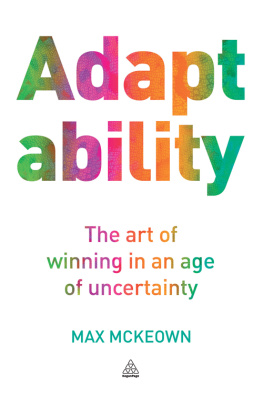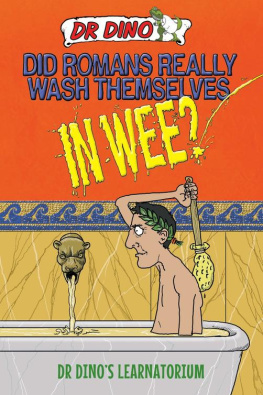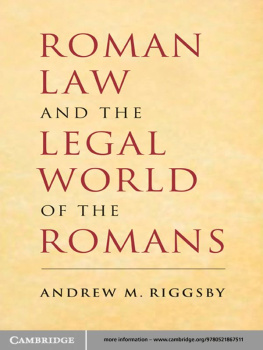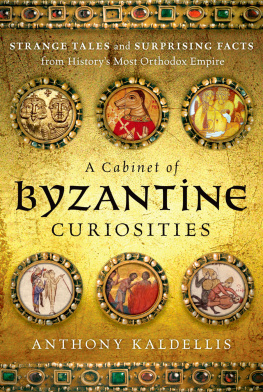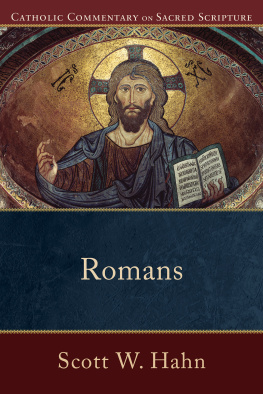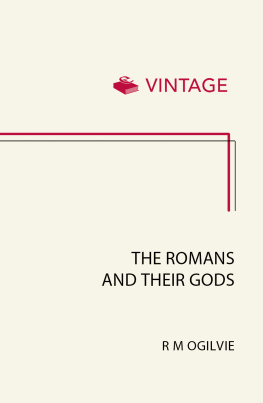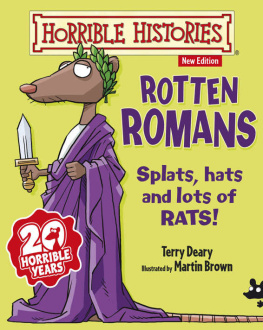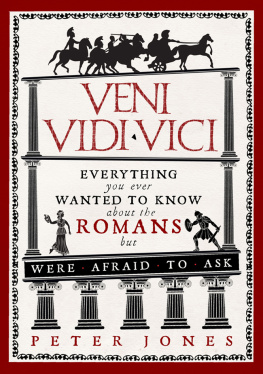
I
FAMILY LIFE
mater dicitur quod exinde efficiatur aliquid.
mater enim quasi materia
Mater means mother because it is the source from which things are produced, for mater (mother) is as it were the materia (material).
St. Isidore Etymologies 9.5.6

Romulus ensured that his city should be large and populous by requiring the inhabitants to rear all their male children and also their firstborn daughters. He forbade the killing of any child under the age of three years unless it was born crippled or with deformities. In such cases he did permit exposure, provided the parents had first shown the child to five neighbors and obtained their agreement (Dionysius of Halicarnassus Roman Antiquities 2.15.1).

Numa Pompilius, the second king of Rome, was praised for amending the law that allowed fathers to sell their sons into slavery. He gave immunity to married sons, so long as the father of both bride and groom had approved the marriage, for he regarded it as unfair that a woman who married a man whom she thought to be free should find herself living with a slave (Plutarch Life of Numa 17).

A marriage can be arranged even when the parties are absent. This is an everyday occurrence (Justinians Digest 23.1.4). A proviso was later appended: So long as the marriage is arranged with the knowledge of the absent parties, or they agree to it subsequently (23.1.5).

The magnificent 5th-century B.C. Etruscan she-wolf, now on the Capitol. Romulus and Remus were added about two thousand years later. A replica of the group was given by Benito Mussolini in 1929 to the city of Rome, Georgia, and erected in front of its City Hall. For several years, to safeguard decorum when important civic events were scheduled, the she-wolf was draped, and the twins were diapered.

There is not the same strict age requirement for the contracting of an engagement as there is for an actual marriage. An engagement can therefore be arranged even at a very young age, provided that both parties understand what is happening: that is to say, they must not be less than seven years old (Justinians Digest 23.1.14).

Marriage is the joining together of a man and a woman in a lifelong partnership, in accordance with laws both human and divine (Justinians Digest 23.2.1). It is on record that for almost five hundred years after the founding of Rome there were no lawsuits or other actions about dowries either in the city or in Latium, because there were no divorces (Aulus Gellius Attic Nights 4.3.1). There is, however, a very considerable amount of space devoted in the legal texts to laws relating to divorce.

Divorce was easy for a man to obtain if he was willing to return his wifes dowry. He simply had to recite the ancient formula tuas res tibi habeto (Have your own things for yourself).

If a man does not take a mistress and give regular payments to someone elses wife, all the married women regard him as pathetic, addicted to shameful practices, a chaser of slave girls. No man gets married except by taking away another mans wife. Can there be any disgrace in divorce, when no woman gets married except to retain her lovers interest? Sexual restraint is taken as proof of ugliness. What woman is so wretched, so ugly, as to be satisfied with only a pair of lovers? Any woman who doesnt know that having just one lover is called marriage is stupid and quaint (Seneca On Benefits 1.9, 3.16).

As censor, with a responsibility to defend traditional morality, the elder Cato (234149 B.C.), expelled a member of the Senate for kissing his own wife in broad daylight in front of his daughter. He claimed that he himself never embraced his wife except after a loud peal of thunder, adding that he was happy when it thundered (Plutarch Cato the Elder 17).

The elder Cato praised a young man when he saw him leaving a brothel, since he felt that this would mean he would leave other mens wives alone. But, when he saw him leaving the brothel on other occasions also, he said to him, Young man, I praised you for coming here from time to time, not for living here (ancient commentators on Horace Satires 1.2.31).

When a woman visited her and was showing off her jewels, the most beautiful in Rome at that time, Cornelia, the mother of the Gracchi, kepther talking till her sons returned from school, and then she said, These are my jewels (Valerius Maximus Memorable Deeds and Sayings 4.4).


A toy horseman.
Do you not see how differently fathers and mothers treat their children? Fathers order them to be roused early to start their chores; even on holidays, they do not allow them to be idle, and draw sweat and sometimes tears from them. Mothers, however, cuddle their children in their lap, and try to keep them in the shade, away from sadness, tears, and hard work (Seneca On Providence 2).

The best slingers came from the Balearic islands, where mothers would not allow their young sons anything to eat unless they were able to hit the dish containing their food with a slingshot (Vegetius Military Affairs 1.16). The islands name was associated with the Greek word (ballein, to throw) (Diodorus Siculus The Library 5.17).

If ever we bumped into a rock when we were children, going along with our mouths gaping open, didnt our nurse smack the rock instead of scolding us? But what had the rock done wrong? Should it have moved out of the way because of our childish stupidity? (Epictetus Discourses 2.19.4).

The children of the wealthy were regularly given over to wet nurses. In the second book of his treatise Gynecology, written in the second century A.D., Soranus makes the following recommendations:
Next page


